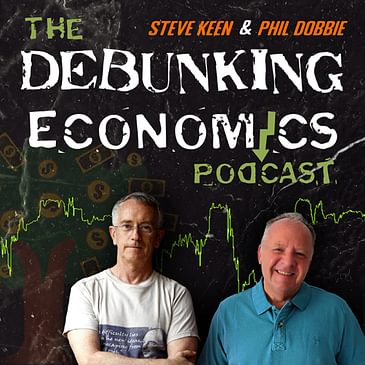The UK is heading to the polls on July 4th and the Conservative Party is heading for annihilation. Yet, when it comes to espousing sensible ideas from textbooks, Rishi Sunak had the making of a good Prime Minister. For example, tackling productivity by building the necessary infrastructure, investing in education and building cities and regions where businesses could cross pollinate their expertise, facilitated by strong communication and transport links. He presented all of these ideas three years ago and since then productivity has fallen. Why? Steve says these are all great ideas, but there was no money there to support them. You can’t facilitate growth whilst pulling money out of the economy through government spending cuts. Hence, Tory party economics has failed on delivery.
Hosted on Acast. See acast.com/privacy for more information.

